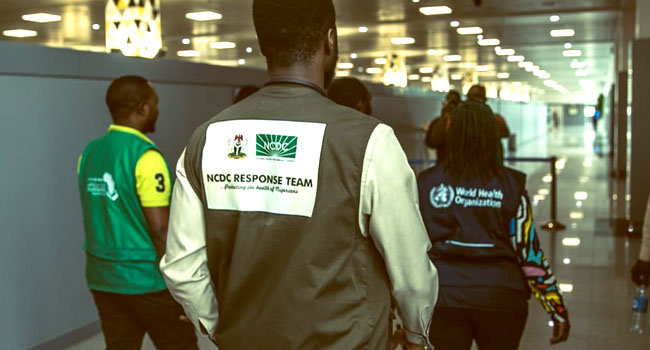The Nigeria Centre for Disease Control (NCDC) has sought to reassure the public amid growing concerns over the spread of the Human Metapneumovirus (HMPV) in parts of the world. The agency, led by Director-General Jide Idris, emphasized that there is currently no serious threat to Nigeria’s health system from the virus.
Speaking during an appearance on Channels Television’s Sunrise Daily on January 8, 2025, Idris acknowledged that while the virus had been responsible for respiratory infections in various regions, Nigeria remains on high alert without any reported cases thus far.
What is HMPV?
Human Metapneumovirus, or HMPV, is a respiratory virus that has been implicated in illnesses ranging from mild flu-like symptoms to more severe respiratory distress, particularly in vulnerable populations such as children and the elderly. Although not a new pathogen, HMPV has not been widely known or discussed until recent global concerns began to surface.
“HMPV is not a new virus,” NCDC’s Jide Idris explained. “It has been implicated in many respiratory infections globally, especially in young children and the elderly. It’s similar to influenza, which many people are already familiar with.”
Despite its potential to cause illness, Idris pointed out that HMPV does not pose an immediate public health risk for Nigeria. “For now, there’s no serious threat. We are monitoring the situation and will continue to assess any developments closely,” he assured.
Nigeria’s Preparedness and Monitoring
Idris also highlighted that the country had learned valuable lessons from previous outbreaks, such as the Ebola crisis in 2014 and the global COVID-19 pandemic. According to the NCDC boss, Nigeria’s public health infrastructure has significantly improved over the years, enabling the country to react quickly to emerging health threats.
“We’ve experienced some major health challenges, and with those experiences, we’ve built public health infrastructure that will help us respond more effectively to emerging diseases,” Idris said. “We’ve learned our lessons, and we are in a good position to manage situations like this one.”
In the past, Nigeria faced serious challenges with Ebola and COVID-19, but the country now boasts a stronger healthcare system, better surveillance, and improved response protocols, according to Idris. He stressed the importance of learning from past crises to prevent a recurrence of the chaos that accompanied the initial outbreaks of these diseases.
Global Context: The Worries Surrounding HMPV
HMPV is currently making headlines globally due to recent outbreaks, particularly in countries with high infection rates. While it has been circulating for years, increased awareness of the virus has been linked to its rising detection in hospitals. Its symptoms closely resemble the common flu, but it has been responsible for more serious respiratory illnesses in vulnerable groups.
For now, the World Health Organization (WHO) has not declared HMPV a global health emergency, but they continue to monitor its spread. “The WHO is on top of the situation, and we collaborate with them on global monitoring of HMPV,” said Idris. “Countries are expected to report any outbreaks, and we are following the global health guidelines to ensure Nigeria stays ahead of potential threats.”
Preventative Measures: What Nigerians Can Do
While there is no immediate threat, the NCDC has provided general advice for Nigerians to protect themselves from respiratory infections, including HMPV. As with many other respiratory viruses, avoiding overcrowded areas, maintaining good hygiene, and following public health protocols are key to preventing its spread.
“We advise Nigerians to avoid overcrowded places, wash their hands frequently, and observe general hygiene practices,” Idris added. “These measures will help reduce the risk of any respiratory infection, including HMPV.”
Health Concerns and National Reassurance
Despite the assurance, the NCDC has not ruled out future cases of HMPV emerging in Nigeria. The agency is, therefore, prepared to continue surveillance to quickly detect and respond to any developments.
Idris’s comments echo a broader effort by the Nigerian government to maintain transparency and reassure the public about health risks. Over the years, the government has invested in health education and public awareness campaigns, particularly in response to high-profile diseases such as Ebola and COVID-19.
“We are in a phase of monitoring and alert. We have not seen any cases in Nigeria, but we are staying vigilant,” Idris concluded. “It’s better to be proactive than reactive, as we have learned from our past experiences.”
Public Health Infrastructure: A Legacy of Previous Crises
The NCDC’s success in managing disease outbreaks is partly due to the lessons learned from past epidemics. After the Ebola crisis, Nigeria improved its disease surveillance and containment systems, establishing specialized treatment centers and conducting regular health drills. The COVID-19 pandemic further highlighted the need for coordinated health responses, which led to greater public health preparedness.
These steps have allowed Nigeria to remain more resilient in the face of emerging health threats. The country’s quick response to Ebola in 2014 was widely praised by international health organizations, and its handling of COVID-19 has been considered a model for other nations to follow, despite the challenges of a large and diverse population.
“We’ve seen that our ability to handle emergencies like Ebola and COVID-19 is much stronger now, and that gives us the confidence to say there’s no need for alarm over HMPV at this time,” said Idris.
Moving Forward: Vigilance and Cooperation
As Nigeria continues to monitor HMPV and other potential health threats, the NCDC has called for continued cooperation with international bodies like the WHO, as well as local governments and healthcare providers. The shared commitment to preventing and controlling outbreaks ensures that the country remains vigilant while avoiding unnecessary panic.
“We are on alert, but we are also ready,” Idris assured Nigerians. “We have learned a lot, and the key is staying informed and prepared.”

